 W
WWilliam Foxwell Albright (1891–1971) was an American archaeologist, biblical scholar, philologist, and expert on ceramics.
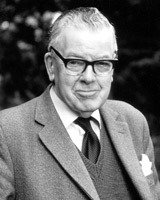 W
WFrederick Fyvie Bruce, usually cited as F. F. Bruce, was a British biblical scholar who supported the historical reliability of the New Testament. His first book, New Testament Documents: Are They Reliable? (1943), was voted by the American evangelical periodical Christianity Today in 2006 as one of the top 50 books "which had shaped evangelicals".
 W
WErnest DeWitt Burton was an American biblical scholar and president of the University of Chicago.
 W
WJoseph Estlin Carpenter was a Unitarian minister, the principal of Manchester College, Oxford. He was an expert in Sanskrit and a pioneer in the study of comparative religion.
 W
WShirley Jackson Case (1872–1947) was a Canadian mathematician, historian of early Christianity, and liberal theologian.
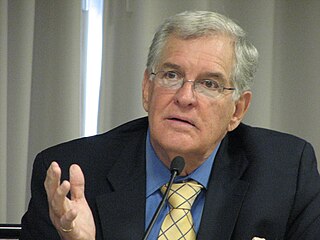 W
WJames Hamilton Charlesworth was the George L. Collord Professor of New Testament Language and Literature until January 17, 2019 and Director of the Dead Sea Scrolls Project at the Princeton Theological Seminary. His research interests include the Apocrypha and Pseudepigrapha of the Hebrew and Christian Bibles, the Dead Sea Scrolls, Josephus, the Historical Jesus, the Gospel of John, and the Revelation of John.
 W
WCarl Christian Clemen, best known as Carl Clemen, was a German theologian and religious historian. He was a member of the history of religions school.
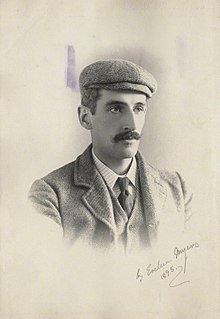 W
WFrederick Cornwallis Conybeare, was a British orientalist, Fellow of University College, Oxford, and Professor of Theology at the University of Oxford.
 W
WJohn Dominic Crossan is an Irish-American New Testament scholar, historian of early Christianity, and former Catholic priest who was a prominent member of the Jesus Seminar. His research has focused on the historical Jesus, on the cultural anthropology of the Ancient Mediterranean and New Testament worlds and on the application of postmodern hermeneutical approaches to the Bible. His work is controversial, portraying the Second Coming as a late corruption of Jesus' message and saying that Jesus' divinity is metaphorical. In place of the eschatological message of the Gospels, Crossan emphasizes the historical context of Jesus and of his followers immediately after his death. He describes Jesus' ministry as founded on free healing and communal meals, negating the social hierarchies of Jewish culture and the Roman Empire.
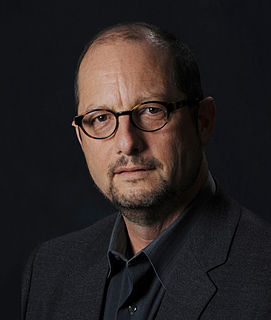 W
WBart Denton Ehrman is an American New Testament scholar focusing on textual criticism of the New Testament, the historical Jesus, the origins and development of early Christianity. He has written and edited 30 books, including three college textbooks. He has also authored six New York Times bestsellers. He is currently the James A. Gray Distinguished Professor of Religious Studies at the University of North Carolina at Chapel Hill.
 W
WRichard Thomas France (1938–2012), known as R. T. France or Dick France, was a New Testament scholar and Anglican cleric. He was Principal of Wycliffe Hall, Oxford, from 1989 to 1995. He also worked for the London School of Theology.
 W
WJoseph Gedaliah Klausner , was a Jewish historian and professor of Hebrew literature. He was the chief redactor of the Encyclopedia Hebraica. He was a candidate for president in the first Israeli presidential election in 1949, losing to Chaim Weizmann. Klausner was the great uncle of Israeli author Amos Oz.
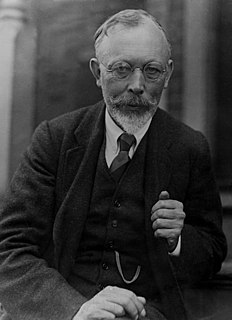 W
WKirsopp Lake was an English New Testament scholar, Church historian, and Winn Professor of Ecclesiastical History at Harvard Divinity School. He had an uncommon breadth of interests, publishing definitive monographs in textual criticism of the New Testament, Greek palaeography, theology, and archaeology. He is probably best known for the massive five-volume work The Beginnings of Christianity—an edition, translation, commentary, and study of the Acts of Apostles—that he conceived and edited with F. J. Foakes-Jackson and, among palaeographers, for the 10-volumes series of Dated Greek Manuscripts to the year 1200—edited with his second wife, Silva New—, one of the leading repertoires of facsimiles of Greek manuscripts.
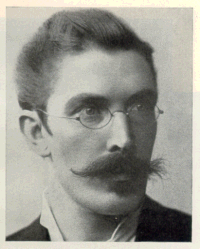 W
WFriedrich Loofs was a German theologian and church historian best remembered for his studies involving the history of dogma.
 W
WJames Frank McGrath is the Clarence L. Goodwin Chair in New Testament Language and Literature at Butler University and is a known for his work on Early Christianity, Mandaean Studies, criticism of the Christ myth theory, and the analysis of religion in science fiction. He received his Ph.D. from Durham University in 1998.
 W
WScot McKnight is an American New Testament scholar, historian of early Christianity, theologian, and author who has written widely on the historical Jesus, early Christianity and Christian living. He is currently Professor of New Testament at Northern Baptist Theological Seminary in Lisle, IL. McKnight is an ordained Anglican with anabaptist leanings, and has also written frequently on issues in modern anabaptism.
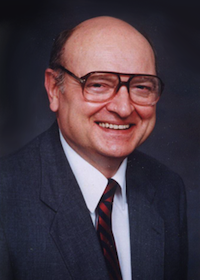 W
WRonald H. Nash was a philosophy professor at Reformed Theological Seminary. Nash served as a professor for over 40 years, teaching and writing in the areas of worldview, apologetics, ethics, theology, and history. He is known for his advocacy of Austrian economics, and his criticism of the evangelical left.
 W
WAlbert Schweitzer was an Alsatian polymath. He was a theologian, organist, writer, humanitarian, philosopher, and physician. A Lutheran, Schweitzer challenged both the secular view of Jesus as depicted by the historical-critical method current at this time, as well as the traditional Christian view. His contributions to the interpretation of Pauline Christianity concern the role of Paul's mysticism of "being in Christ" as primary and the doctrine of Justification by Faith as secondary.
 W
WRussell Shorto is an American author, historian, and journalist who is best known for his book on the Dutch origins of New York City, The Island at the Center of the World. Shorto's research for the book relied greatly on the work of the New Netherland Project, now known as the New Netherland Research Center, as well as the New Netherland Institute. Shorto has been the New Netherland Research Center's Senior Scholar since 2013.
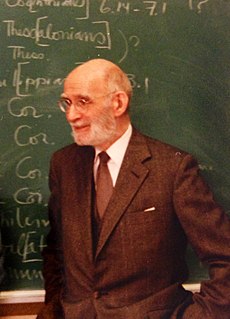 W
WMorton Smith was an American professor of ancient history at Columbia University. He is best known for his reported discovery of the Mar Saba letter, a letter attributed to Clement of Alexandria containing excerpts from a Secret Gospel of Mark, during a visit to the monastery at Mar Saba in 1958. This letter fragment has had many names, from The Secret Gospel through The Mar Saba Fragment and the Theodoros.
 W
WBaron Hermann von Soden was a German Biblical scholar, minister, professor of divinity, and textual theorist.
 W
WErnst Peter Wilhelm Troeltsch was a German liberal Protestant theologian, writer on the philosophy of religion and the philosophy of history, and a classical liberal politician. He was a member of the history of religions school. His work was a synthesis of a number of strands, drawing on Albrecht Ritschl, Max Weber's conception of sociology, and the Baden school of neo-Kantianism.
 W
WGéza Vermes, was a British academic, Biblical scholar, and Judaist of Hungarian Jewish descent—one who also served as a Catholic priest in his youth—and scholar specialized in the field of the history of religion, particularly ancient Judaism and early Christianity. He is best known for his complete translation of the Dead Sea Scrolls into English; his research focused on the Dead Sea Scrolls and other Ancient Hebrew writings in Aramaic such as the Targumim, and on the life and religion of Jesus. Vermes was one of the most important voices in contemporary Jesus research, and he has been described as the greatest Jesus scholar of his time. Vermes' written work on Jesus focuses principally on the Jewishness of the historical Jesus, as seen in the broader context of the narrative scope of Jewish history and theology, while questioning and challenging the basis of the Christian doctrine on Jesus.
 W
WArthur Edward Pearse Brome Weigall was an English Egyptologist, stage designer, journalist and author whose works span the whole range from histories of Ancient Egypt through historical biographies, guide-books, popular novels, screenplays and lyrics.
 W
WHerbert George Wood, best known as H. G. Wood, was a British theologian and academic.